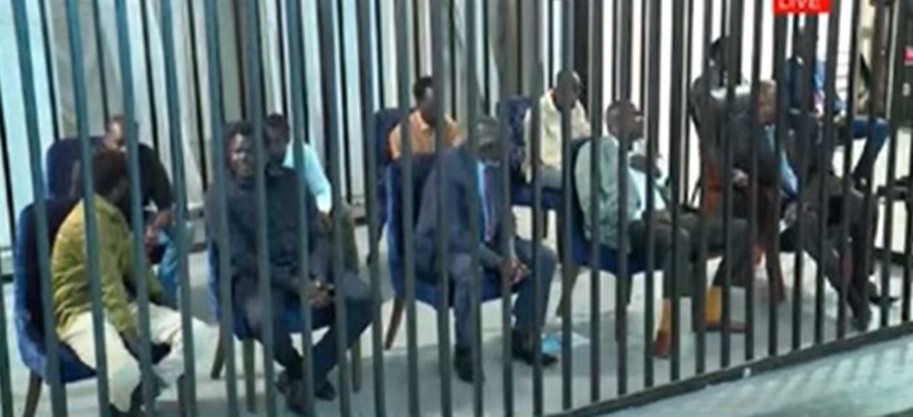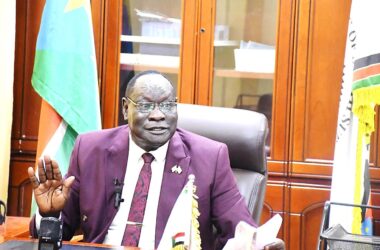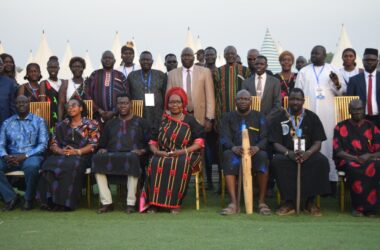By Alan Clement
The Special Court hearing the case of Dr. Riek Machar and seven co-accused will commence official proceedings on Wednesday to allow the prosecution team time to submit and verify its evidence.
In opening statements following the dismissal of the defense’s objections, the prosecution alleged that Dr. Riek Machar and seven co-accused orchestrated a brutal and coordinated assault in Nassir, Upper Nile, in March 2025.
They alleged the accused financed, commanded, and weaponized the White Army militia, which executed surrendered SSPDF soldiers including Major General David Majur, destroyed UN property, and leaked classified military information. “The incident in Nassir was characterized by brutal mass murder in cold blood, inhumane treatment, and total disregard of the laws of South Sudan,” said lead prosecutor Ajo Ohisa.
Prosecutors requested the adjournment, citing the sensitivity of the case and the requirement that evidence be properly registered with court authorities before presentation. “We want to proceed, but the requirement is that we must have this evidence in court. It is not our own making; it is our right to request time for proper submission and verification,” said lead prosecutor Ajo Ohisa
In response, lead defense advocate Dr. Geri Raimondo argued that the accused have been denied fair trial rights, citing prolonged detention since March 2025, politicized media campaigns, and arrests made without lifting constitutional immunity. “This conduct amounts to unlawful and prior conviction of our accused, and a violation of the Constitution’s guarantee of presumption of innocence,” Raimondo told the court, referencing Article 19 of South Sudan’s Transitional Constitution.
The defense maintained that the case lacks credible and material evidence, describing it as politically motivated and procedurally flawed emphasizing that the prosecution must prove guilt beyond reasonable doubt using reliable, constitutional evidence. “A prosecutor is not entitled to act as if representing private interest in litigation. Their duty is to assist the court in arriving at the truth; not to secure conviction at all costs,” Raimond told the bench.
He also challenged the prosecution’s ability to prove the accused’s physical involvement in the Nassir attacks, citing the logistical improbability of their presence. “Nassir is approximately 712 kilometers from Juba. We don’t have roads or transport infrastructure connecting the two. How did they get there?” he queried.
The defense concluded by urging the court to dismiss the charges and uphold constitutional safeguards, stating, “Justice is neither proclaimed from political podiums nor declared in security offices it must be grounded in law.”
The presiding judge granted the request, directing the prosecution to ensure all material – including documentary, forensic, and testimonial evidence – is submitted through court police before hearings resume.
The prosecution has pledged to present a multi-layered evidence strategy, including survivor testimony, operational documents, and digital forensic records, to establish that the attacks in Nassir were orchestrated and financed by the accused.
The adjournment follows Monday’s ruling where the court dismissed objections by the defense team, clearing procedural hurdles to allow the trial to proceed. The high-profile case continues to draw public attention as one of the most significant war crimes trials in South Sudan’s history.



